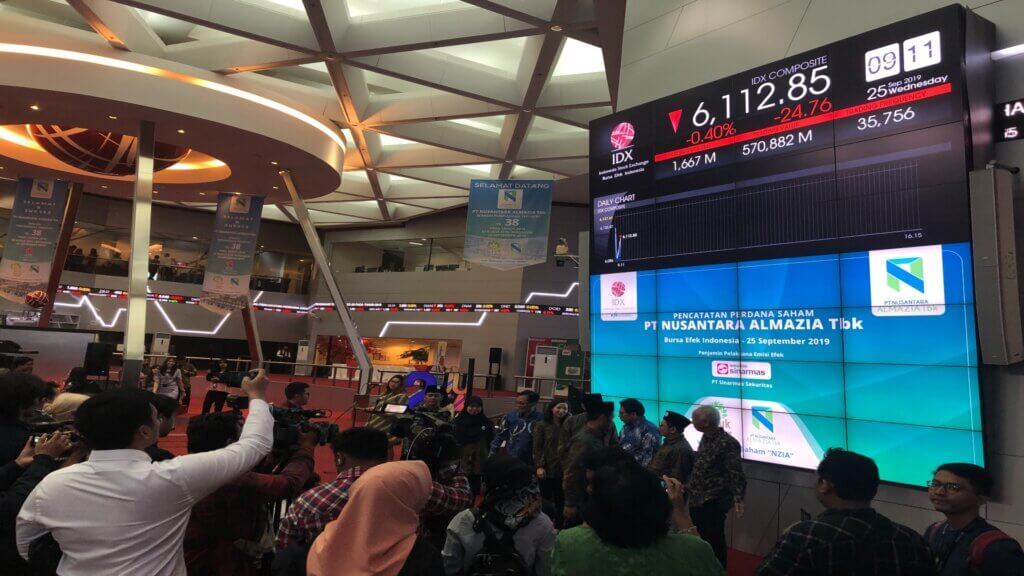
The Asia-Pacific (APAC) region has turned into an economic powerhouse over the past few decades, housing a significant chunk of the global population, a burgeoning middle class, and trillions in GDP and consumer spending.
That being said, however, there are trillions of dollars more in potential value still waiting to be unlocked across the equity markets in this region. By undoing the archaic protectionist policies and fallacious economic thinking, the region can once again get back on its famed double digit growth trajectory.
Cross-listing essentially refers to companies from across the region and the rest of the world listing in one or more local exchanges. With this, not only do companies get access to much needed capital, investors in these regions stand to get plenty of wealth creation opportunities that extend beyond their borders, with total transparency, in adherence to global standards.
Growing Importance of Asia-Pacific
The Asia-Pacific region is a key driver of global economic growth, and has been throughout the past few decades.
In addition to this, countries in the region such as China, India, Malaysia, and Indonesia have turned into massive consumption centres. For companies, having their stocks listed in these countries, and allowing locals to get a piece of it is a great way to generate goodwill, all the while overcoming various protectionist barriers.
Access To A Vast Pool of Investors
By listing across different countries and exchanges, companies stand to gain access to a vast pool of investors, and with it much better valuations.
Having access to such large pools of potential investors helps during periods of high volatility, creating strong support for stocks in certain regions, when there is selling pressure on others.
At the same time, stocks can easily command higher valuations, which comes in handy when borrowing, or during follow-on stock offerings.
Diversified Investor Base
In addition to a company’s inherent fundamentals and future outlook, stock valuations are also driven by the monetary policies, inflationary pressures, and other macroeconomic trends that persist in the country where it is listed.
For example, during periods of rock-bottom interest rates in 2020, equity markets started rallying, with individual securities commanding valuations as high as 38 times earnings. Now that the Fed has raised rates to its highest in decades, at 5.25%, the S&P 500 average price-to-earnings ratio is back to 24.
This dependence of monetary policies and regional headwinds can be minimized to a great extent by cross-listing. If the central banking policies of one country turns hawkish, a company can take advantage of dovish policies on the other end of the pond.
Cross-listed stocks also benefit from significantly higher volumes, which make buying fractional shares, CFDs, and mirror protocols, all within reach for investors.
Increased Visibility & Brand Recognition
Being listed on a public exchange alone helps improve a company’s public profile manifold, especially as investors, analysts, and the broader ecosystem consistently engage with the stock, its prospects, and more.
This visibility can grow significantly when a stock is cross-listed on multiple exchanges, boosting brand recognition, and overall profile across various geographic regions.
Given that all major companies would want to maintain a presence in the APAC region, having their stocks listed in local exchanges is a great way to build buzz and goodwill among consumers.
Increased Transparency
As lucrative as the APAC region is for companies and investors alike, it remains plagued by the lack of transparency among regulatory bodies and other critical institutions.
China is notorious in this regard, which often compels even locals to give equity markets a miss in favour of real estate. However, if Chinese companies manage to list in Hong Kong and Singapore, it instils trust even among domestic investors, given how strong institutions are in the latter regions.
In addition to this, stocks are constantly followed and scrutinized by the analyst community across different regions, giving investors additional confidence.
Final Words
As the APAC region continues to assert its dominance as an economic powerhouse, it makes great strategic sense for companies to list their stocks across multiple local exchanges.
While it comes with its share of regulatory hurdles and compliance requirements, the broader benefits far outweigh these constraints, which should make cross-listing the norm among multinational corporations.
























